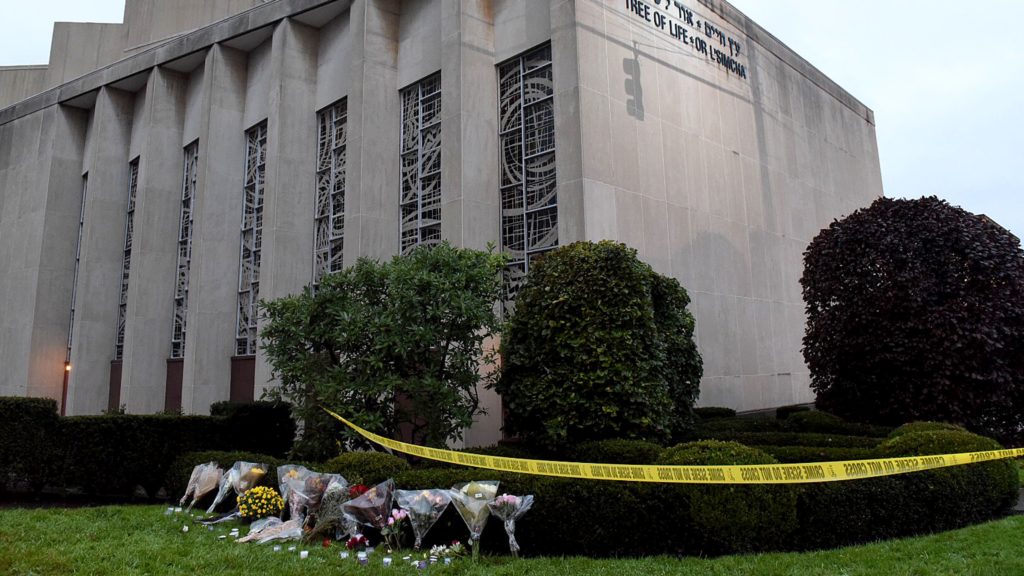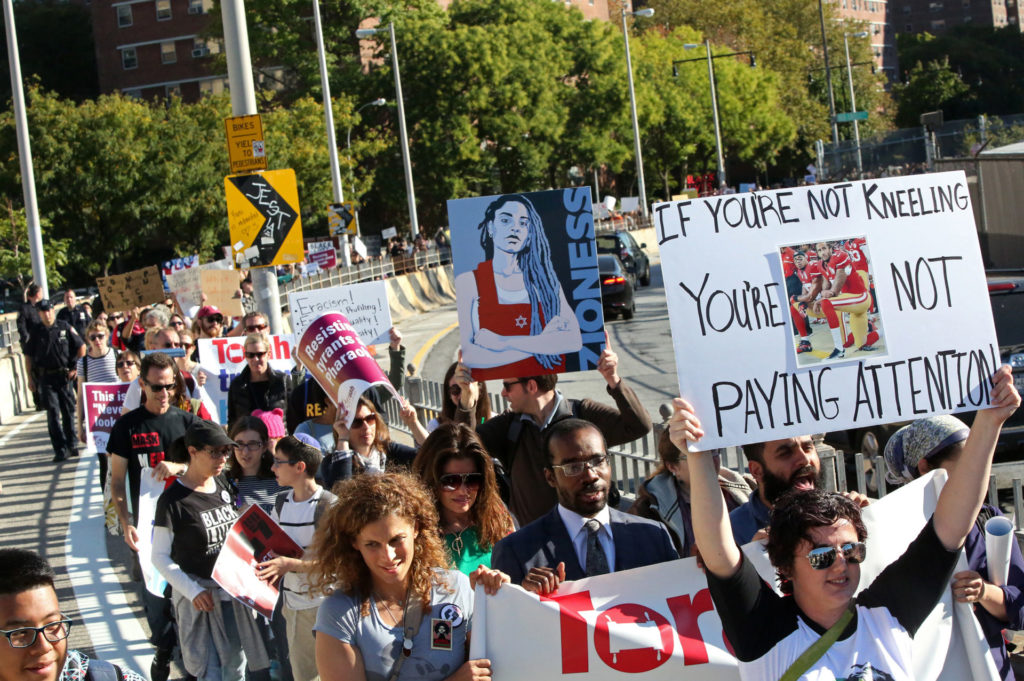Jews have never backed down from supporting other oppressed communities
On Oct. 27, the deadliest attack on American Jews in history occurred. Eleven people were murdered by a rabid anti-Semite who screamed “all Jews must die” after he shot them dead on Shabbat, the Jewish day of rest.
An article published by Tyler Sabloff titled, “On the Pittsburgh shooting: These are not isolated incidents”criticizes Jewish communities and families, namely, members of the same marginalized community as the victims of this anti-Semitic massacre. He argues that they have not been present during other tragedies affecting different marginalized groups in the United States and says that they had turned a blind eye until this violence and hate affected them.

First, American Jews, throughout history and especially today, have been at the forefront of supporting some of the most marginalized communities worldwide, especially through tragedies and horrors. Make no mistake, Jewish communities in America and worldwide support other marginalized communities during tragedies which make the news, but also during daily struggles which do not necessarily make the news. In fact, the Hebrew Immigrant Aid Society (HIAS), the very Jewish organization which angered the shooter so much that he shot Jews in a synagogue, has been a steadfast supporter of refugees of all nationalities, religions and ethnicities, providing them needed assistance and aid so that they could be resettled and thrive in their new homes.
Regardless, Sabloff asks Jews, “Where the hell have you been?”
Where the hell have Jews been? At the forefront of support for oppressed communities throughout American history, up to today.
He asks where Jews have been when 49 people were murdered in Pulse nightclub in Orlando, Fla. and when there was a shooting at the Charleston church. Yet, Jews poured support to LGBTQIA* communities after the Orlando mass shooting and have been loud advocates of gun control measures in response to other shootings as well. American rabbis of all denominations, from Reform to Orthodox, offered support for the LGBTQIA* community and denounced the hatred and rhetoric after the Orlando shooting. In Tel Aviv, the LGBTQIA* rainbow flag was projected onto Rabin Square in solidarity with the community, and Israelis held vigils across the city. The Religious Action Center (RAC) posted “Prayers for Orlando” resources for Jewish people around the world to pray for the victims. In response to this mass shooting and many others, they have lobbied for an assault weapons ban and universal background checks. Young people of the Reform Jewish Movement designated a National Call-In Day for Gun Violence.

He asks where we have been when people of the trans* community are attacked every day. However, many Jewish organizations such as Keshet, the North American Federation of Temple Youth (NFTY) and the Union for Reform Judaism (URJ) have been advocates for the rights of transgender people within the Jewish community and beyond, realizing that there is a lot of work to be done and seeing an obligation to take part in that work.
He asks where we have been for every non-white passing person who has been profiled, brutalized or murdered by the police. Yet, Jews have been integral to the founding of many civil rights organizations, such as the National Association for the Advancement of Colored People (NAACP), the Leadership Conference on Civil and Human Rights and the Southern Christian Leadership Conference (SCLC).
Sabloff ends his article urging people to drop the “#Together Against Anti-Semitism” filter and rather use “#Together Against All Forms of Hate.” But you could stand up against anti-Semitism in light of recent tragedies, while also being an ally of other communities as well. Right-wing groups use the same line of logic when insisting that people should say “All Lives Matter” instead of “Black Lives Matter.” You can support American Jews during a time when anti-Semitism is skyrocketing (it increased in 2017 by 57 percent in the U.S. according to the Anti-Defamation League) and post a “#Together Against Anti-Semitism” photo after the recent atrocity, while also working to achieve justice for other communities.
… you could stand up against anti-Semitism in light of recent tragedies, while also being an ally of other communities as well.
Showing your support for one group that has been brutally attacked does not detract from any other community. Rather, it shows that you will not stand for injustice, you will not stand for hate, and you will not stand for bigotry. I implore the greater Washington University community to stand with the Tree of Life Community, as well as the greater Jewish community, to oppose this anti-Semitism, hate and bigotry.
Contributed by Washington University in St. Louis CAMERA Fellow Nate Turk. Originally published at Student Life.

